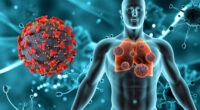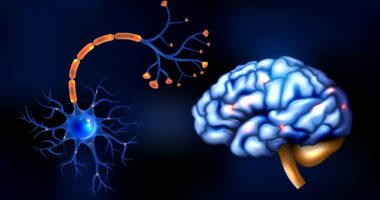Depression, a complex mental health disorder, impacts millions of individuals around the globe. It goes beyond temporary sadness or a case of the blues; depression is a serious condition that can significantly impact every aspect of a person’s life. Understanding its symptoms, causes, and treatment options is essential for those affected and their loved ones.
What is Depression?
Depression, also referred to as major depressive disorder, is a mental health condition marked by persistent and pervasive feelings of sadness, hopelessness, and a significant decrease in interest or pleasure in usual activities. These symptoms must last for at least two weeks to meet the clinical criteria for depression. However, depression can manifest in various ways, and its severity can range from mild to severe.
Symptoms of Depression
The symptoms of depression can vary widely but commonly include:
- Persistent Sadness: A deep sadness that doesn’t seem to go away.
- Loss of Interest: Finding yourself less excited about hobbies, activities, and social interactions that used to bring so much joy.
- Fatigue: Feeling constantly tired and lacking energy.
- Changes in Sleep Patterns: Having trouble sleeping or sleeping too much?
- Changes in Appetite: Experiencing a notable shift in weight due to changes in eating patterns.
- Difficulty Concentrating: Experiencing a noticeable weight loss or gain due to shifts in your eating patterns.
- Feelings of Worthlessness: Excessive guilt, self-criticism, or feelings of worthlessness.
- Physical Symptoms: Unexplained aches and pains.
- Thoughts of Death or Suicide: Recurrent thoughts about death, suicidal ideation, or suicide attempts.
Keep in mind that not everyone dealing with depression will have all of these symptoms, and the impact of these symptoms can differ from person to person.

Causes of Depression
Depression can arise from a mix of genetic, biological, environmental, and psychological influences.
- Genetics: Having a family history of depression can raise the chances of experiencing it.
- Biological Factors: Changes in neurotransmitter levels, particularly serotonin, dopamine, and norepinephrine, can contribute to depression.
- Environmental Factors: Stressful life events, such as the loss of a loved one, financial problems, or relationship issues, can trigger depression.
- Psychological Factors: Personality traits, such as low self-esteem or being overly self-critical, can make someone more susceptible to depression.
- Medical Conditions: Chronic illnesses, such as diabetes, heart disease, and chronic pain, can be associated with depression.
- Substance Abuse: Alcohol or drug abuse can contribute to the onset or worsening of depression.
Treatment Options for Depression
Depression can be effectively treated. The best approach often involves a combination of different therapies.
- Psychotherapy: Also known as talk therapy, psychotherapy involves working with a mental health professional to address the underlying issues of depression. Cognitive-behavioral therapy (CBT) effectively changes negative thought patterns and behaviors.
- Medication: Struggling with fluctuating moods? Antidepressants can work wonders by helping to balance the chemicals in your brain that affect your mood. Selective serotonin reuptake inhibitors (SSRIs), serotonin and norepinephrine reuptake inhibitors (SNRIs), and atypical antidepressants are commonly prescribed.
- Lifestyle Changes: Regular exercise, a healthy diet, and adequate sleep can have a positive impact on mood. Reducing stress through mindfulness, meditation, or yoga can also be beneficial.
- Support Groups: Being part of a support group can help you connect with others and ease any feelings of loneliness.
- Alternative Therapies: Some people find relief through alternative therapies, such as acupuncture, massage, or herbal supplements. However, it’s important to consult a healthcare provider before trying these treatments.
Seeking Help
If you or someone you know is struggling with depression, it’s crucial to seek help. Talk to a healthcare provider, therapist, or counselor who can diagnose properly and create a tailored treatment plan. Remember, reaching out for help is a sign of strength, not weakness.
Conclusion
Depression is a serious and often misunderstood condition, but with the right support and treatment, it is manageable. Understanding the symptoms, causes, and available treatments can empower individuals to seek help and find a path to recovery. If you or a loved one are experiencing symptoms of depression, don’t hesitate to reach out to a mental health professional for assistance. Your mental health is just as important as your physical health, and taking steps to address depression can lead to a happier, healthier life.









